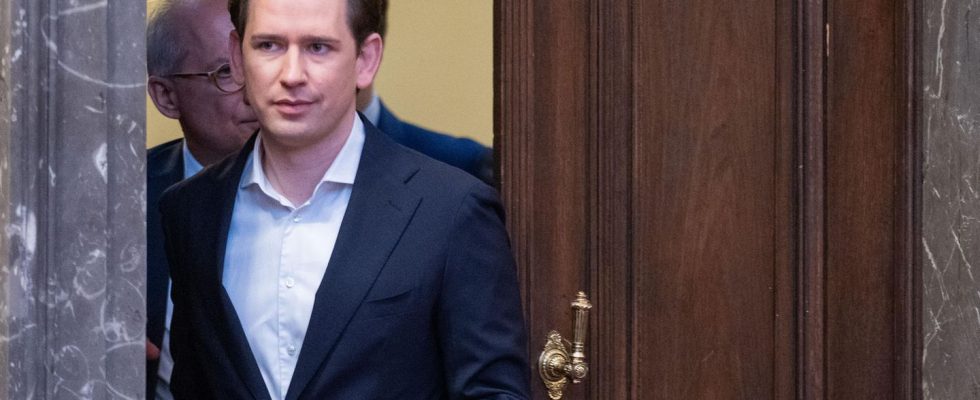Austria
Ex-Chancellor in court: This is how the start of the trial went for Sebastian Kurz
Austria’s former chancellor Sebastian Kurz appears before the regional criminal court in Vienna
© Georg Hochmuth / APA / DPA
From the government bench to the dock: Austria’s ex-Chancellor Sebastian Kurz is on trial in Vienna for three days. He lied, prosecutors say. He himself claims the opposite. Now what’s true?
Two years after his inglorious departure, Austria’s ex-chancellor and ÖVP member Sebastian Kurz is back in Vienna: as a family man, entrepreneur and consultant. The political wonderwuzzi who actually comes with who has risen to the top of Austrian politics through embellished surveys and newspaper advertisements, has reinvented himself. As the head of a cybersecurity company, he oversees 50 employees in Tel Aviv. He also runs a consulting and investment company. It reads like a phoenix rising from the ashes. But the next pile of ash is already waiting in Vienna. Because Kurz is not in the state capital on business.
The ex-chancellor awaits an appointment at the Vienna Regional Criminal Court. Kurz is supposed to stand trial there for three days. The indictment is 108 pages long. It’s about corruption, job bargaining and lies. The accusation: Austria’s ex-chancellor is said to have pulled the strings when it came to the question of the top position and the appointment of the supervisory board of the state holding company Öbag and put a confidant at the top. The company manages the state’s corporate investments worth billions; in 2022, according to the balance sheet, it will have amounted to 30 billion euros. The chairmanship is one of the most sought-after positions in the Austrian economy.
A U-committee looked into the questions in 2020 and wanted to know how involved Kurz was in filling the position at Öbag. “Involved in the sense of informed,” was Kurz’s brief answer at the time. The opposition didn’t believe him and filed a complaint.
Three years in prison for a lie
Today Kurz sits in the full courtroom. There was a huge crowd, around 100 journalists filled the room, even the defendant seemed surprised. Austrian media reported that the places were said to have been completely “reserved” a week before the trial.
Kurz still stands by his statement. Before the appointment, he said: “I hope for a fair trial and that at the end of the day the allegations turn out to be false.” At the start of the trial, his lawyer spoke of “sham arguments” and called for a different judge. However, his application for bias was rejected and the trial continues.
The prosecutor explained that the then finance minister was allowed to make personnel suggestions for Öbag. The Chancellor made the final decision. The fact that Kurz was only informed is therefore wrong. He put his confidant Thomas Schmidt at the head of the Öbag, according to investigators from the Economic and Corruption Public Prosecutor’s Office (WKStA), who cite a “ring of evidence” made up of chat messages to which Schmidt also contributed. These are credible because Schmidt, also accused, is seeking star witness status.
According to the indictment, the then head of cabinet, Bernhard Bonelli, who sits next to Kurz in the dock, is said to have known about it. He is said to have been present at meetings to fill the position and mediated the supervisory board, but knew that the chancellor would make the final decision and rejected candidates.
The prosecutors are convinced that Kurz lied when questioned before the U-Committee. If the court finds this too, Austria’s ex-chancellor could face a three-year prison sentence.
Austria’s corrupt state apparatus
But then the question arises: Why did the charismatic ex-chancellor do that? There is already an answer to this: the prosecutors assume that Kurz wants to protect his reputation.
The investigators discovered Kurz because his coalition partner at the time, Heinz-Christian Strache (FPÖ), wanted to sell off Austria’s largest tabloid newspaper to a supposed Russian oligarch in a secretly recorded video (Ibiza affair). The investigators suspected corruption in the Austrian state apparatus. The trial, which began on Wednesday in Vienna against Kurz and two other defendants, is part of a major coming to terms with the time when the charismatic ÖVP member controlled the Alpine republic’s fortunes.
Sources: “The standard“, “The press“, with material from DPA and AFP


